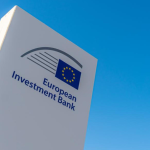Executive Summary
OpenAI’s upcoming release of GPT-5, its most advanced language model, on August 7, 2025, marks a major leap in the integration of artificial intelligence into the financial and economic sectors. GPT-5 introduces key enhancements in speed, reasoning, multimodal capabilities and autonomous task execution, which are poised to revolutionize everything from market analysis and fraud detection to economic modeling and financial planning.
This report explores the ways GPT-5 will reshape finance and economics, providing a detailed analysis of its functional applications, key advantages and critical considerations for adoption. It concludes with strategic recommendations for businesses and institutions seeking to stay competitive in the AI-driven future.
Introduction and Background
Artificial intelligence is no longer a theoretical tool in finance—it is a core component of modern financial infrastructure. The transition from GPT-4 to GPT-5 represents a significant technological upgrade, with GPT-5 capable of understanding not just text but also images, charts, tables and audio. This positions it as a multimodal, intelligent and autonomous agent capable of performing complex tasks previously reserved for specialized professionals.
In finance and economics, where precision, efficiency and speed are critical, GPT-5 is set to offer far-reaching benefits across real-time analysis, personalized financial advice, regulatory compliance and algorithmic trading.
Data and Analysis
A. Real-Time Market Analysis
GPT-5 can process vast volumes of financial data in real-time, including:
– Market news, earnings calls and filings
– Social media sentiment (e.g., tweets impacting stock prices)
– Financial charts and tables
This allows it to produce context-aware insights and dynamic investment recommendations within seconds.
B. Autonomous Financial Agents
GPT-5 will power intelligent agents capable of:
– Monitoring and adjusting investment portfolios
– Paying bills and managing personal finances
– Filing taxes and regulatory forms automatically
These agents are expected to reduce operational overhead and improve financial decision-making.
C. Advanced Financial Advisory
Using its advanced reasoning capabilities, GPT-5 will:
– Provide personalized financial plans
– Simulate various financial scenarios (e.g., retirement, debt management)
– Simplify complex instruments like derivatives, insurance and bonds
D. Multimodal Dashboards and Reports
GPT-5 can ingest data from:
– PDFs, Excel sheets, scanned documents and charts
– Automatically generate interactive financial dashboards
E. Risk, Compliance and Fraud Detection
GPT-5 will:
– Monitor transactions and detect anomalies
– Interpret new regulations and flag non-compliance risks
– Draft compliance documentation (e.g., AML, KYC reports)
F. Quantitative Finance & Trading
GPT-5 will assist financial engineers by:
– Generating and back testing trading strategies
– Coding and deploying algorithmic trading bots
– Translating economic research into executable models
G. Accounting and Reporting
GPT-5 automates:
– Transaction categorization
– Generation of IFRS -compliant reports
– Error detection and internal auditing processes
Key Findings
GPT-5 will accelerate automation of back-office processes, enhancing productivity and accuracy across accounting, compliance and advisory services.
Multimodal capabilities (handling text, visuals and structured data) allow GPT-5 to operate across previously siloed systems.
Autonomous execution means AI agents can function with minimal oversight, especially in low-risk repetitive financial tasks.
Economic analysis will be democratized, as GPT-5 can simulate macroeconomic models and interpret policy impacts for researchers and governments alike.
Human oversight remains essential, particularly for high-stakes decisions and regulatory compliance, to mitigate risks of AI hallucinations or biases.
Recommendations
For Financial Institutions:
- Integrate GPT-5 in advisory, reporting and compliance workflows to reduce operational costs and increase insight quality.
- Establish AI governance frameworks to ensure ethical and compliant deployment of autonomous agents.
- Train staff to collaborate with AI tools, focusing on oversight, interpretation and higher-level decision-making.
For Economists and Policymakers:
- Leverage GPT-5 to model complex policy outcomes and generate real-time economic forecasts with multimodal inputs.
- Use GPT-5 to increase public access to economic literacy, by creating simplified, interactive models and explanations.
- Ensure data privacy and regulatory compliance in any deployment involving sensitive financial or personal data.
References
GPT-5 and the new wave of generative tools. What's really changing for companies?
Breaking Down the Latest News on GPT-5
OpenAI launches two ‘open’ AI reasoning models
OpenAI set to launch GPT-5 in August, promises major leap in AI performance








